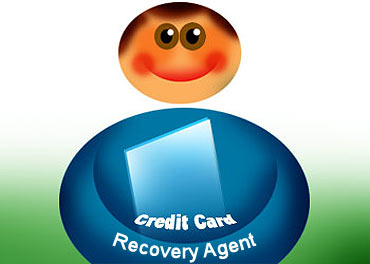
Let's get something straight any kind of loan agreement whether involving the purchase of an asset or not, is first and foremost a civil contract. Therefore any failure on part of the borrower in respect of repaying the borrowed amount in part or full can be remedied only through legal procedure i.e. civil remedy through court.
So very simply, a bank or financier does not have the right to use force on defaulters and deploy musclemen for the recovery of loans.
But there are numerous instances when they do exactly that, and sometimes to grave and often fatal consequences leading to suicides by the defaulters. Banks have internal debt recovery cells or departments and also use third party agents for recovery of loans. The Debt Recovery Agents often work on a commission linked to recovery amounts and therefore they are highly motivated to show results by use of any kind of means threats on phone and in person, public humiliation, and other ways of intimidation verbal and sometimes also physical.
In the bank or financier's defence the legal and judicial system is indeed very slow and any case that they may file against the defaulting borrower will take a long time to settle, however this does not justify use of force or illegal means and a consumer needs to be aware of this and not get intimidated.
Click NEXT to read RBI guidelines governing recovery of dues.
www.investmentyogi.com is a one-stop personal finance website which helps in managing finances, investments and taxes through services like financial planning, online tax filing, budgeting and 'Ask the Expert'.

The Reserve Bank of India in order to protect the interests of both the borrower and the creditor in the debt recovery process, has issued certain guidelines that a recovery agent and the bank that employs him have to honour.
The borrower can complain to the RBI on non compliance with the above or any other kind of harassment by the bank. Further, failure to incorporate the RBI's guidelines could lead to the central bank invoking a ban on engaging recovery agents by the bank in a particular area, either jurisdictional or functional, for a limited period.
In case of persistent breach of its guidelines, the RBI may extend the period of the ban or the area of ban.
www.investmentyogi.com is a one-stop personal finance website which helps in managing finances, investments and taxes through services like financial planning, online tax filing, budgeting and 'Ask the Expert'.

The borrower should remember the following in case of an unsolicited recovery call:
The borrower should as far as possible be calm, reasonable and
All things said and done, the best thing that the borrower can do to avoid this situation is of course, borrow only to the extent required and to the extent that it is within his means to repay so that he never defaults on the loan in the first place. After all, the debt recovery agent would have come into this situation, only because the borrower has defaulted on his obligation to pay!
www.investmentyogi.com is a one-stop personal finance website which helps in managing finances, investments and taxes through services like financial planning, online tax filing, budgeting and 'Ask the Expert'.